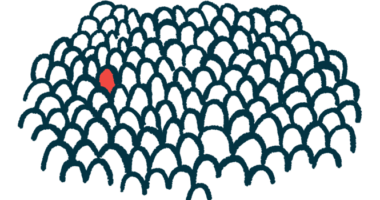Encoded Therapeutics Raises $135M to Advance Potential Dravet Gene Therapy

Encoded Therapeutics has raised $135 million to support the first human clinical trials for ETX101, its gene therapy for SCN1A-positive Dravet syndrome patients.
The funding also will be used for a natural history study to better understand the progression of the disease in people carrying SCN1A mutations, which are the main underlying cause of Dravet syndrome. Gene therapy research projects for other pediatric neurological disorders affecting the central nervous system (CNS), comprised of the brain and spinal cord, also will be advanced with this funding.
The company also announced that ETX101 was granted orphan drug and rare pediatric disease designations by the U.S. Food and Drug Administration (FDA). Both programs offer important incentives for the development of therapeutics for rare and serious diseases.
“I am incredibly proud of the progress our organization has made over the past year. We have built an outstanding team, further advanced ETX101 towards the clinic, applied our technology to a series of pipeline programs, and expanded our capabilities to become a fully integrated organization,” Kartik Ramamoorthi, PhD, co-founder and CEO of Encoded Therapeutics, said in a press release.
“We are grateful to our investors for supporting our vision to transform patients’ lives with cell type-selective genetic medicines,” Ramamoorthi added.
Mutations in one of the two copies of the SCN1A gene are the main genetic cause of Dravet, occurring in about 80% of the cases. These mutations result in the production of a non-functional alpha subunit of NaV1.1., a sodium channel found on the surface of nerve cells that is essential in the transmission of electrical signals throughout the brain.
Research is ongoing to determine how these mutations cause the typical seizures seen in Dravet syndrome. However, increasing evidence suggests that GABA-producing neurons — a type of inhibitory nerve cell that prevents excessive neuronal activity — are the cells that are mainly affected.
A deficient sodium channel activity in GABAergic neurons may impair the production of inhibitory signals, resulting in the overactivation of the nervous system and the development of seizures.
Gene therapies that correct the loss of Dravet-associated proteins, such as the alpha subunit of NaV1.1., are potential strategies to prevent or ease symptoms in people with the disorder.
ETX101 was designed to restore the levels of NaV1.1-alpha specifically in GABAergic neurons. It uses a modified and harmless version of an adeno-associated virus (AAV) to deliver a working copy of SCN1A to GABAergic inhibitory neurons.
Data from a preclinical study with a well-established mouse model of Dravet showed that a single injection of ETX101 into the brain increased the levels of SCN1A and of sodium NaV1.1 channels in GABAergic interneurons located in a brain region called the hippocampus. The hippocampus is known to be linked to memory and spatial navigation.
The gene therapy also eased both the frequency and severity of seizures in mice. Importantly, it also lowered the animals’ risk of sudden unexpected death in epilepsy (SUDEP), with animals living equally long as healthy, wild-type control mice. Dravet mice that did not receive the gene therapy died during the study period.
“Since 2019, our company has attracted some of gene therapy’s most experienced executive leaders to prepare ETX101 for the clinic and beyond,” said Sean Nolan, board chairman at Encode.
“This well-rounded team has made significant advances in manufacturing, clinical development, and regulatory affairs for ETX101,” Nolan said. “By coupling these with an innovative discovery engine, Encoded is advancing its preclinical pipeline of gene therapies to patients suffering from devastating pediatric CNS diseases.”
The fuinding was led by GV (formerly Google Ventures), with the support of other investors, including Matrix Capital Management, ARCH Venture Partners, Illumina Ventures, RTW Investments, Boxer Capital, Nolan Capital, HBM Genomics, Menlo Ventures, Meritech Capital, Farallon Capital Management, SoftBank Vision Fund 2, and additional unnamed investors.
“Encoded’s cutting edge platform has the potential to impact a broad range of diseases across different organ systems,” said David Schenkein, MD, general partner and co-leader of GV’s life sciences team.
“Importantly, Encoded has translated this innovation into a one-time, first-in-class precision gene therapy candidate for the treatment of SCN1A+ Dravet Syndrome, a devastating pediatric disease with significant unmet medical need,” said Schenkein, who will join the board of directors of Encoded Therapeutics as an observer.
The company’s gene therapy program for Dravet had raised $104 million in 2019 from several investors.






